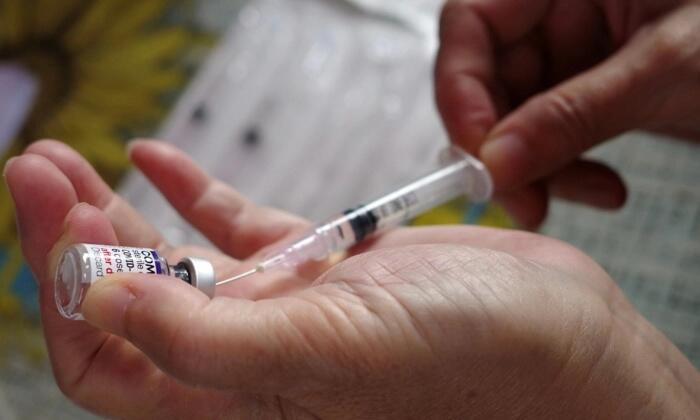by Zachary Stieber via The Epoch Times,
A federal judge has thrown out a lawsuit brought by Texas against Pfizer, finding that U.S. law protects Pfizer due to the emergency declared over the COVID-19 pandemic.
Several laws shield Pfizer from claims that it misrepresented the efficacy of its vaccine, U.S. District Judge Sam R. Cummings said in the Dec. 30 ruling.
“The Court finds that as a matter of law under the circumstances of this case, the Defendant is entitled to immunity under the Public Readiness and Emergency Act (PREP Act),” Cummings wrote.
He also said that both the PREP Act and the Food, Drug, and Cosmetic Act, preempt the allegations from Texas.
Texas Attorney General Ken Paxton in 2023 brought the suit in county court, alleging Pfizer misrepresented the results of the clinical trial that tested its COVID-19 vaccine.
Pfizer and its partner promoted the vaccine as 95 percent effective against COVID-19 infection, but the companies relied on just two months of trial data.
“Of 17,000 placebo recipients, only 162 acquired COVID-19 during this two-month period. Based on those numbers, vaccination status had a negligible impact on whether a trial participant contracted COVID-19,” the suit stated.
“The risk of acquiring COVID-19 was so small in the first instance during this short window that Pfizer’s vaccine only fractionally improved a person’s risk of infection.”
Texas officials accused Pfizer of violating several laws, including the Food, Drug, and Cosmetic Act, that prohibit misleading advertising.
Pfizer removed the case to federal court and said in court filings that it was protected against the suit by the PREP Act.
The act states in part that it grants immunity “from suit and liability under Federal and State law with respect to all claims for loss caused by, arising out of, relating to, or resulting from the administration to or the use by an individual of a covered countermeasure,” with narrow exceptions, during an emergency.
The U.S. health secretary declared an emergency over COVID-19 in 2020. Immunity for vaccine makers was recently extended through 2029.
“The statute provides immunity from claims for ‘any type of loss’ related to the administration or use of Pfizer’s vaccine,” Pfizer lawyers wrote in a brief in support of the company’s motion to dismiss the case, quoting from a ruling in a separate case.
“The claims here fall squarely within this broad definition of ‘loss.’”
Texas lawyers said in response that the PREP Act does not shield Pfizer in part because Congress did not preempt state claims against drug manufacturers.
“The State’s Complaint contains well-pled factual allegations focusing on Pfizer’s gross misrepresentations to the public about specific aspects of its vaccine’s performance, and that is not preempted,” they told Cummings.
Cummings sided with Pfizer in his brief ruling, which concluded by saying the case was dismissed “for essentially the reasons argued in the Motion and Reply” from Pfizer.
Paxton’s office and Pfizer did not respond to requests for comment.
